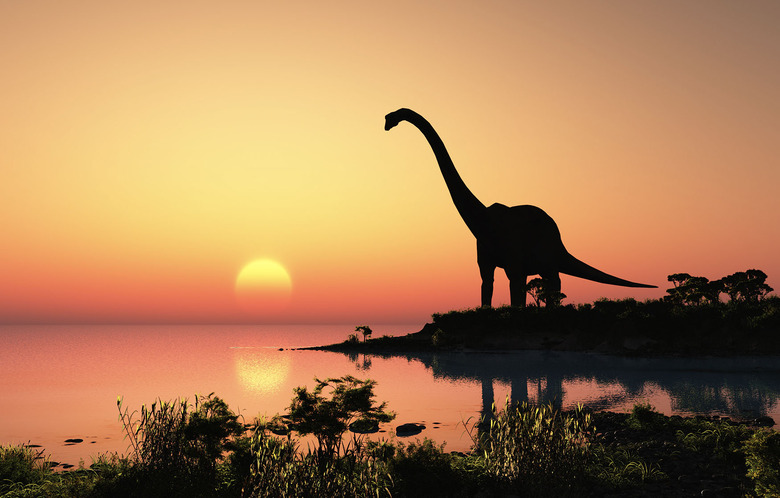Dinosaurs Could Exist On Alien Planets, Study Claims
Dinosaurs may still exist, at least on other planets. According to a new study published in the Monthly Notices of the Royal Astronomical Society, some scientists believe that dinosaurs, or at least aliens very similar to dinosaurs, could exist on other planets with higher oxygen levels more similar to those found during the dinosaur era.
It's an intriguing idea and one that could have some merit, depending on who you ask. But how exactly are we meant to find these alien dinosaurs on their faraway planets? Well, the study claims that we could start the search by looking at exoplanets for substances that aren't found on Earth anymore. This could help us locate a planet currently undergoing a Phanerozoic stage.

"Modern Earth's light fingerprint has been our template for identifying potentially habitable planets, but there was a time when this fingerprint was even more pronounced – better at showing signs of life," Lisa Kaltenegger, a co-author on the study, explained in a statement. By looking for things like higher levels of oxygen than Earth currently has, Kaltenegger and her colleagues believe we could find evidence of dinosaurs on alien planets.
Finding evidence of a planet currently undergoing the equivalent of its Phanerozoic stage could indeed indicate a hotbed for evolutionary processes, allowing creatures like dinosaurs to evolve and exist. Of course, that would also mean finding some kinds of signs of life on other planets as a whole, something we have struggled immensely to do over the past two decades.
However, scientists aren't ready to give up just yet. Many are convinced that alien life is out there, and while all of our exploration of Mars and other planets has yet to show any clear indication of life – even at its most minute level – scientists continue to hold out hope of discovery.
If we spend our time looking at planets for signs of them being in their Phanerozoic stage, Kaltenegger believes we very well could find evidence of dinosaurs on alien planets that are unlike anything we've ever seen here on Earth.
